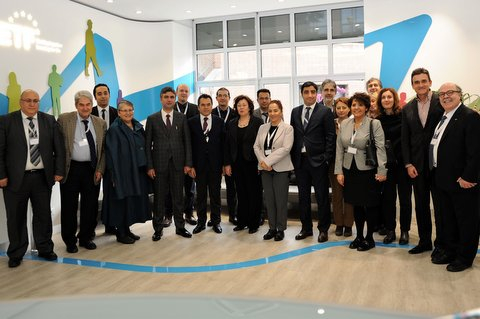
Working together for work-based learning
‘Vocational education must get out of classrooms and into enterprises,’ says Ercan Demirci, Deputy Undersecretary of Turkey’s Ministry of National Education. That’s why new laws to improve vocational education and training see apprenticeship compulsory for all upper secondary VET students.
Mr Demirci shared the update with senior colleagues from his ministry and other key Turkish institutions: the National Employment Agency (ISKUR), the Statistical Institute (TurkStat), the Union of Municipalities, as well as the EU Delegation in Turkey and ETF experts at a meeting in Turin. The focus of the meeting was improving data collection and analysis, monitoring and evaluation of work-based learning.
In the context of the Riga Conclusions, which frames VET development goals for EU and candidate countries, Turkey has nominated work-based learning as a development priority. Turkey is also working to improve the quality of teachers and trainers and modernise infrastructure. A pilot will see 30 new state-of-the-art VET schools set up in 30 provinces. And to promote entrepreneurship, learners can apply for a startup business grant of TL50,000 (around €12,300) and a further 100,000 TL (around €24,600) interest-free loan.
‘VET is an important area that we are enthusiastic about,’ Mr Demirci says, however developments and actions are not communicated through statistics, data gaps exist.‘The evaluation and monitoring of work-based learning is not being done as it should. We want to work together with the ETF, employers and civil society to improve this.’
ETF statistical expert Eva Jansova shared different approaches to data collection and analysis used to inform policy development in Europe, including enterprise and adult education surveys undertaken by Eurostat.
Developing a quality assurance framework for work-based learning in-line with the Quality Framework for Traineeships and the European Quality Assurance in Vocational Education and Training (EQAVET) is another policy option.
Participants will meet again soon in Turkey to, with the support of the ETF, drive developments in data collection, monitoring and evaluation forward.
Did you like this article? If you would like to be notified when new content like this is published, subscribe to receive our email alerts.